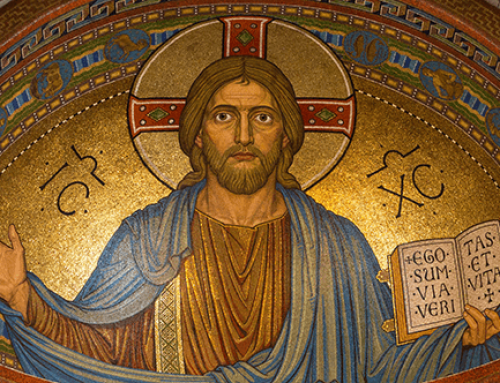 The three-in-one or trinitarian nature of God is perhaps one of the most difficult concepts to grasp when we contemplate the nature of God. But when we begin to understand this very foundational facet of His nature, we also gain insights into our relationship with Him and with one other. I have found that the trinitarian nature of God explains the why of many things.
The three-in-one or trinitarian nature of God is perhaps one of the most difficult concepts to grasp when we contemplate the nature of God. But when we begin to understand this very foundational facet of His nature, we also gain insights into our relationship with Him and with one other. I have found that the trinitarian nature of God explains the why of many things.
What do we mean by the Trinity?
Sometimes people seem to get the impression that the concept of a Triune God is a New Testament idea. Triune means three in one. Trinity (n.) or Triune (adj.) is derived from the Latin trinitas, a combination of tres (three) and unitas (one). The word Trinity is used by the Church to describe the God of the Bible as one God in three persons. But the Trinity is also seen in the Old Testament, although stated more clearly in the New.
In the opening words of the Bible, we read,
In the beginning God created the heavens and the earth. The earth was formless and void, and darkness was over the surface of the deep, and the Spirit of God was moving over the surface of the waters. (Genesis 1:1-2)
What we miss in the translation is that the Hebrew word Elohim, translated as God, is plural, not singular. This explains why a few verses further we find reference to our image and our likeness,
Then God said, “Let Us make man in Our image, according to Our likeness; and let them rule over the fish of the sea and over the birds of the sky and over the cattle and over all the earth, and over every creeping thing that creeps on the earth.” God created man in His own image, in the image of God He created him; male and female He created them. (Genesis 1:26-27)
Mankind was created in God’s image as both male and female. Alone, Adam could not truly reflect the image of God because God is never alone. When Adam was first created, before Eve had been made, God looked upon him and said, “It is not good for the man to be alone.” Why? Because God is one God in three persons. Never alone. But together as a family, Adam, Eve, and their children would more fully reflect the nature of God.
There are many Old Testament passages that refer directly or indirectly to the different persons of the Godhead, far too many to examine here. But what I would like to point out is this: in both the Old and New Testaments we can see all three persons of the Trinity, and yet that God is One God!
“Hear, O Israel! The LORD is our God [Elohim, plural], the LORD is one!” (Deut. 6:4)
There is one body and one Spirit, just as also you were called in one hope of your calling; one Lord, one faith, one baptism, one God and Father of all who is over all and through all and in all. (Eph. 4:4-6)
God is three persons. God is One. We wonder… how can that be?
In one sense, it is a mystery we do not fully understand. But on the other hand, there are certain things we can understand from the Scripture:
- God is one in nature. What is true of the character or nature of the Father is equally true of the Son and of the Spirit.
- God is one in purpose. The Father, Son and Spirit are never at odds with one another, never in conflict with one another, always working together to fulfill a common mission.
- Within the community of the Godhead, Father, Son and Spirit fulfill individual roles by which we identify them as distinct persons. Stephen Seamands writes, “The Father, Son and Holy Spirit are distinct persons by virtue of their relationships with one another.” (Seamands 2005)
What does the trinitarian nature of God mean for me?
God is by nature a relational God. He exists eternally in relationship and in community.
- Through salvation, God invites human beings into the community of the Godhead; we are adopted as children of the Father (John 17:20-23).
- God deals with us both as individuals and in community. We are not as independent as we think we are.
- We reflect the nature of God more fully together than we ever could apart.
God does not act alone:
- All three persons of the Trinity worked together in Creation (Col. 1:15-16, Gen. 1:2, 26).
- Jesus proclaimed that He did nothing alone, but the Father worked through Him (John 14:10).
- In the same way, the Father works in and through His Church (Phil. 2:12-13).
- God works through the prayers of people (Matt. 7:7-8, James 5:16).
Our God is a God who lives and moves in relationship with others. He knows us intimately and loves us deeply. He invites us to dwell in fellowship with Him and to work in partnership with Him. We can know Him not only as our God, but as our Heavenly Father, as Jesus our Saviour and Lord, and as our faithful companion and Helper, the Holy Spirit.
Pastor Cindy
From the Series: Nature of God





I’m glad that you wrote about the Trinity – a mystery to us and, again, it’s not. The Truth Project session regarding this opened up an understanding for me, which I’m still developing and learning.
I ❤ that we can have a relationship with all the Persons of the Trinity. Each telationship serves a different role in our lives. What a beautiful illustration of what our human relationships can & should be. Unwavering, unconditional agape love.